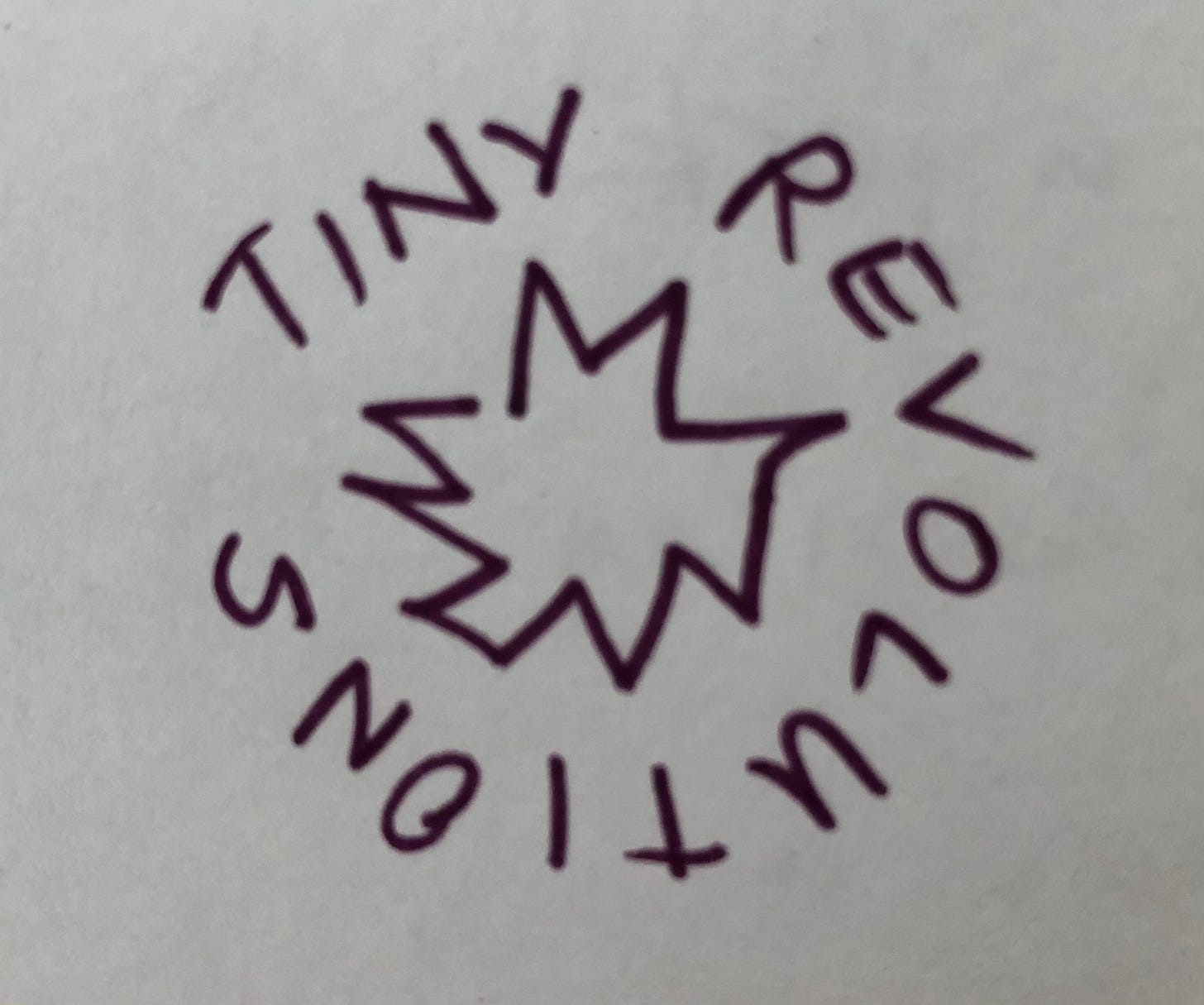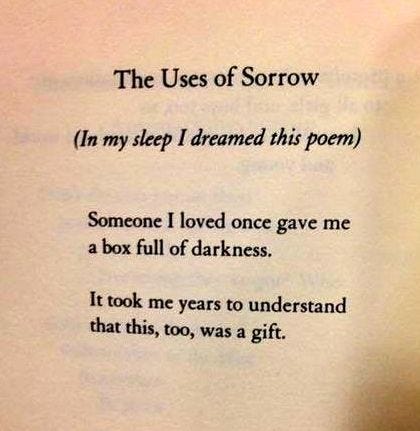Tiny Revolutions №47: A Tiny Evolution
you get there how you get there ൾ
Hi, I’m Sara, and this is Tiny Revolutions, a weekly dispatch of personal writing and links about the art of becoming who you are. Reply anytime, I love to hear from you.
Exciting week here, as I finally got a real logo for this newsletter! I’ve been using one I hastily cobbled together on Canva.com for ages, so it’s amazing to finally have one that has actual style and personality.
I drew the image above in a notebook a while back and then worked with my brilliant friend and collaborator Isla Bell Murray at Lama Six to make it into something legit. (If you are looking for design help on a project, she is both a talented designer and great to work with.)
Theme here: start with something kinda crappy and make it better, with help if necessary.
Let me know what you think about the new look!
***
After I wrote last week about the problem with mental models, I came across this guide, How to get over ‘never good enough,’ about the difference between healthy perfectionism and destructive perfectionism (and getting over the latter), and found myself nodding along. According to the article, here’s how to spot the bad kind of perfectionism:
“You are highly perfectionistic, fuelled by a constant, critical inner voice of intense shame or fear.
You demonstrate a heightened or excessive sense of responsibility and look for solutions.
You have difficulty accepting and expressing painful emotions, remaining more analytical or ‘in your head’.
You discount, dismiss or deny abuse or trauma from the past, or the present.
You worry a great deal (but hide that habit) and avoid situations where you’re not in control.
You are highly focused on tasks and others’ expectations, using accomplishment as a way to feel validated. Yet as the last accomplishment fades, new pressure assumes itself, and any success is discounted.
You have an active and sincere concern for the wellbeing of others, while allowing few (if any) into your inner world.
You hold a strong belief in ‘counting your blessings’ and feel that any other stance reflects a lack of gratitude.
You have emotional difficulty with personal intimacy but demonstrate significant professional success.
You might have accompanying mental health issues that involve anxiety and control issues, such as obsessive-compulsive disorder (OCD), generalised anxiety disorder (GAD), panic and/or eating disorders.”
This may as well have been a list of descriptors for me before my early 30s or so, when I started to become aware that I Had Some Issues. I’ve done a lot of work since then to learn to accept the messy reality of who I am, but it’s a constant practice. If you feel like the above describes you too, I highly recommend reading the entire guide, which was written by a psychiatrist who wrote a book on the subject.
I’ve always thought of the audience for this newsletter as “high-functioning crazy people,” which I’ve been told is maybe a little too abrasive to say in public. But I think the thing is that most high-functioning people are in fact a little (or a lot) crazy, just not all of them recognize it. And there’s nothing wrong with that, so why not just own it?
Here are some things I thought were worth sharing this week.
Some seasonal content for ya.
“Only you can experience your own pain, your own joy. If there is one impression that comes into your life that is not received, then in that second you die a little bit. None of us completely lives like that, but at least we don’t need to lose ninety percent of the experience of our life.”
— Charlotte Joko Beck in Everyday Zen, a great and accessible read about practicing Zen Buddhism.
A Mary Oliver poem that was new to me.
As the lockdowns return, how about a walk through Paris at dusk?
“After walking for a week, I felt like the trees had feelings. After walking for two weeks, I started to feel sorry for them, and I even felt like they might feel sorry for me.”
I loved this essay by Sarah Miller about how she started walking outside instead of doing the elliptical after gyms closed for the pandemic. Reading anything by her is like sitting down next to a sharp, funny friend.
Speaking of walking:
“Walking at our own pace creates an unadulterated feedback loop between the rhythm of our bodies and our mental state that we cannot experience as easily when we’re jogging at the gym, steering a car, biking, or during any other kind of locomotion. When we stroll, the pace of our feet naturally vacillates with our moods and the cadence of our inner speech; at the same time, we can actively change the pace of our thoughts by deliberately walking more briskly or by slowing down.”
“This association between a low level of purpose in life and death remained true despite how rich or poor participants were, and regardless of gender, race, or education level. The researchers also found the association to be so powerful that having a life purpose appeared to be more important for decreasing risk of death than drinking, smoking or exercising regularly.”
Nice to see research validating this sort of thing, which we knew intuitively all along.
Perspective.
“The real answer is: Show that you don’t know. Show them that you’re fumbling. Why wouldn’t you? How do you expect your child to fall and then stand up and say ‘‘That’s OK’’ when you won’t even say, ‘‘I don’t know how to discuss the pandemic with you’’? Are children not allowed to be upset? Does that inconvenience you? You want to protect and prepare them. But I’m not saying it’s easy.”
Great interview with children’s-book author and illustrator Mo Willem.
Happy Thanksgiving from Tiny Revolutions HQ! I’m grateful for ye.
😘
Sara
p.s. I love meeting and talking to people who read this newsletter and have had some great conversations over the past few months. I’m thinking with the holidays looming there might be some slow work weeks ahead, so reply and let me know if you’d be up for a quick chat.
p.p.s. I’d be even more grateful if you shared this with someone else who’d appreciate it!







